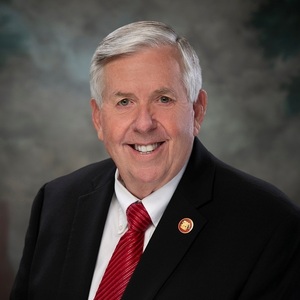Missouri governor signs bill with ethanol, biodiesel tax credits

October 5, 2022
BY Erin Krueger
Missouri Gov. Mike Parson on Oct. 5 signed House Bill 3, which creates state retail tax credits to support the sale of ethanol and biodiesel blends. The legislation also creates a tax credit to benefit biodiesel producers.
For ethanol, the bill establishes a 5-cent-per-gallon tax incentive for retailers that sell higher blends of the fuel, including E15 and E85. The credit will be in place for six years, starting on Jan. 1, 2023, and sunsetting on Dec. 31, 2028. The ethanol retailer credit is capped at $5 million per fiscal year.
The retailer tax credit for biodiesel starts at 2 cents per gallon for blends that contain between 5 percent and 10 percent biodiesel. The credit is set at 5 cents per gallon for blends that contain more than 10 percent but less than 20 percent biodiesel. Like the ethanol credit, the retailer tax credit for biodiesel will be in place for six years, sunsetting on Dec. 31, 2028. The bill caps the value of the credit at $16 million per fiscal year.
Advertisement
Advertisement
HB 3 also supports biodiesel production within the state of Missouri by establishing a production tax credit of 2 cents per gallon. The credit will be in place for six years, sunsetting at the end of 2028, and is capped at $4 million per fiscal year.
Growth Energy is cheering the new ethanol incentive. “The savings available on E15 surged to nearly a dollar per gallon in some areas this summer, and this important legislation will help more Missouri retailers make those lower-carbon, lower-cost options available to drivers across the state,” said Emily Skor, CEO of Growth Energy. “We’re very thankful to Governor Parson and members of the legislature for working tirelessly to get this bill over the finish line. These targeted incentives will open up a wealth of new economic opportunities for farmers, biofuel producers, and rural families, while boosting Missouri’s leadership on clean, domestic energy.”
Ethanol producer Poet LLC, which operates two biorefineries in Missouri, is also applauding the ethanol tax credit. “The biofuel retailer incentive will fuel meaningful savings at more gas pumps across the state of Missouri,” said Steve Murphy, general manager at Poet Bioprocessing — Laddonia. “We’re grateful to Governor Parson and Missouri’s legislative leaders, including Representative Pollitt and Senator Bean, who carried this important legislation during the special session, and Representative Gregory, who originally introduced the bill in the regular session.”
Advertisement
Advertisement
Clean Fuels Alliance America is welcoming the new tax incentives for biodiesel. “We congratulate Missouri on this significant legislation and thank Governor Parson for helping to strengthen the biofuels corridor throughout the Midwest,” said Donnell Rehagen, CEO of Clean Fuels. “Missouri joins the ranks of Iowa, Illinois, Minnesota, and others with some of the most forward-thinking legislation that values the production and use of biodiesel. It is our nation’s best option here-and-now to decarbonize heavy-duty transportation.”
“Supporting biodiesel also helps lower fuel prices,” said Jeff Earl, director of state regulatory affairs at Clean Fuels. “Recently, the World Agricultural Economic and Environmental Services released a study showing that availability of biodiesel boosts the fuel supply and consequently reduces the price of diesel at the pump by 4 percent on an average annual basis. This equates to more than 20 cents per gallon savings to consumers and the domestic supply chain at today’s prices.”
Related Stories
Calumet Inc. on Aug. 8 confirmed its Montana Renewables biorefinery is currently running at full capacity. An initial phase of the company’s MaxSAF initiative remains on track to boost SAF capacity to up to 150 MMgy by mid-2026.
Marathon Petroleum Corp. on Aug. 5 released second quarter financial results, reporting improved EBITDA for its renewable diesel segment. The company primarily attributed the improvement to increased utilization and higher margins.
Chevron Corp. on Aug. 1 confirmed the company started production at the Geismar renewable diesel plant in Louisiana during the second quarter after completing work to expand plant capacity from 7,000 to 22,000 barrels per day.
California’s new specified source feedstock attestation requirement: A critical new compliance step for renewable fuel producers
As of July 2025, California’s SCFS requires renewable fuel producers using specified source feedstocks to secure attestation letters reaching back to the point of origin. This marks a significant shift in compliance expectations.
The public comment period on the U.S. EPA’s proposed rule to set 2026 and 2027 RFS RVOs and revise RFS regulations closed Aug. 8. Biofuel groups have largely expressed support for the proposal but also outlined several ways to improve the rulemaking.
Upcoming Events










